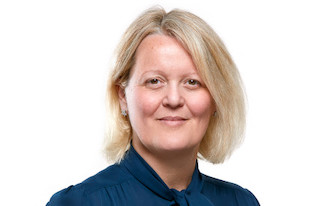NatWest-RBS said on Friday its operating profit before tax more than tripled to £1.074 billion in the third quarter and total income rose 14.5% to £2.77 billion.
However, NatWest shares fell almost 5% amid concerns about the bank’s shrinking net interest margin, a crucial measure of profitability.
The group’s net interest margin contracted to 1.54% from 1.65% a year ago.
NatWest’s quarterly profits were boosted by the release of bad loan reserves totalling £242 million.
The profit also came despite a £294 million litigation and conduct charge — which includes a provision for an anticipated fine after NatWest recently pleaded guilty to three offences of money laundering between 2012 and 2016.
AJ Bell investment director Russ Mould said: “We’re at another turning point for the UK banks with the prospect of an imminent interest rate hike.
“Current profit figures are being flattered by the release of provisions for Covid-related bad debts.
“This is old news.
“What matters now is growing net interest margins, which is the difference between what a bank receives from interest on loans and the interest it pays out on savings deposits.
“In a growing interest rate environment, banks in theory should be able to increase their net interest margins and therefore boost earnings.
“Next week could potentially see the Bank of England start to raise interest rates in the UK or failing that we could see it happen in December.
“Rates are expected to go from 0.1% to 1% by next May, and potentially 1.25% by the end of 2021.
“With this prospect firmly in the headlights, NatWest has somewhat disappointed the market by announcing a reduction in its third quarter net interest margin.
“That’s been blamed on the non-repeat of the tax variable lease repricing gain in Q2 2021 in its commercial banking arm.
“This situation puts pressure on the bank to start charging more for its lending products and it has wasted no time in doing so, lifting its fixed-rate mortgage deals immediately after the Budget earlier this week.
“In fact, the bank has been making changes to rates for the past few months as well as making some of its mortgage-related cashback deals less generous.
“There is a difficult balancing act as the mortgage market has been incredibly competitive during a period of incredibly low interest rates and NatWest will have to make sure it doesn’t increase its rates to the extent that borrowers can find better deals elsewhere.
“The outlook for higher rates may suit NatWest and its banking peers, but challenges are mounting for families and businesses.
“Higher mortgage costs for those on variable rate deals, and more expensive mortgages for new deals, add to financial pressures including a sharp rise in energy bills and greater cost of buying food.
“Greater borrowing costs will also weigh on companies just at a time when so many businesses still have considerable pandemic-related debts to pay off.
“Therefore, NatWest is not going to see an easy ride as we move into 2022.”
NatWest Group CEO Alison Rose said: “Throughout Q3 2021, NatWest continued to deliver a strong operating performance; growing in key areas and accelerating our digital transformation to improve customer experience and make our business more efficient.
“Our robust capital position means that we have been able to buy back £402 million of our shares to date whilst also investing for growth as we support our customers and drive sustainable returns to our shareholders.
“Although we are seeing challenges in the economy and for our customers — especially around supply chains and the cost of living — a number of key indicators remain positive; growth is good, unemployment is low and there are limited signs of default across our book …”
Sophie Lund-Yates, equity analyst at Hargreaves Lansdown, said: “A lot of attention’s being given to the money put aside to pay for money laundering regulation breaches.
“Clearly this kind of issue is unsavoury, and with the PPI scandal only just disappearing in the rear-view mirror, it’s uncomfortably common.
“However, a longer-term problem is lower yielding loans which have hurt the all-important net-interest margin.
“Natwest was keen to point out it’s increasing mortgage rates, but the full effect of this won’t show up until full year results.
“In the meantime, any updates on interest rate hikes would go down particularly well where Natwest is concerned, which is more exposed to the rate environment than some other banks.
“Natwest is also in the enviable position of having too much capital.
“Approaching 19%, the CET1 capital ratio is rather too generous by some people’s books.
“What the bank decides to do with this is a crucial marker of the stock’s attractiveness – repurchasing larger chunk of the government’s remaining stake in the bank seems a likely candidate.”
